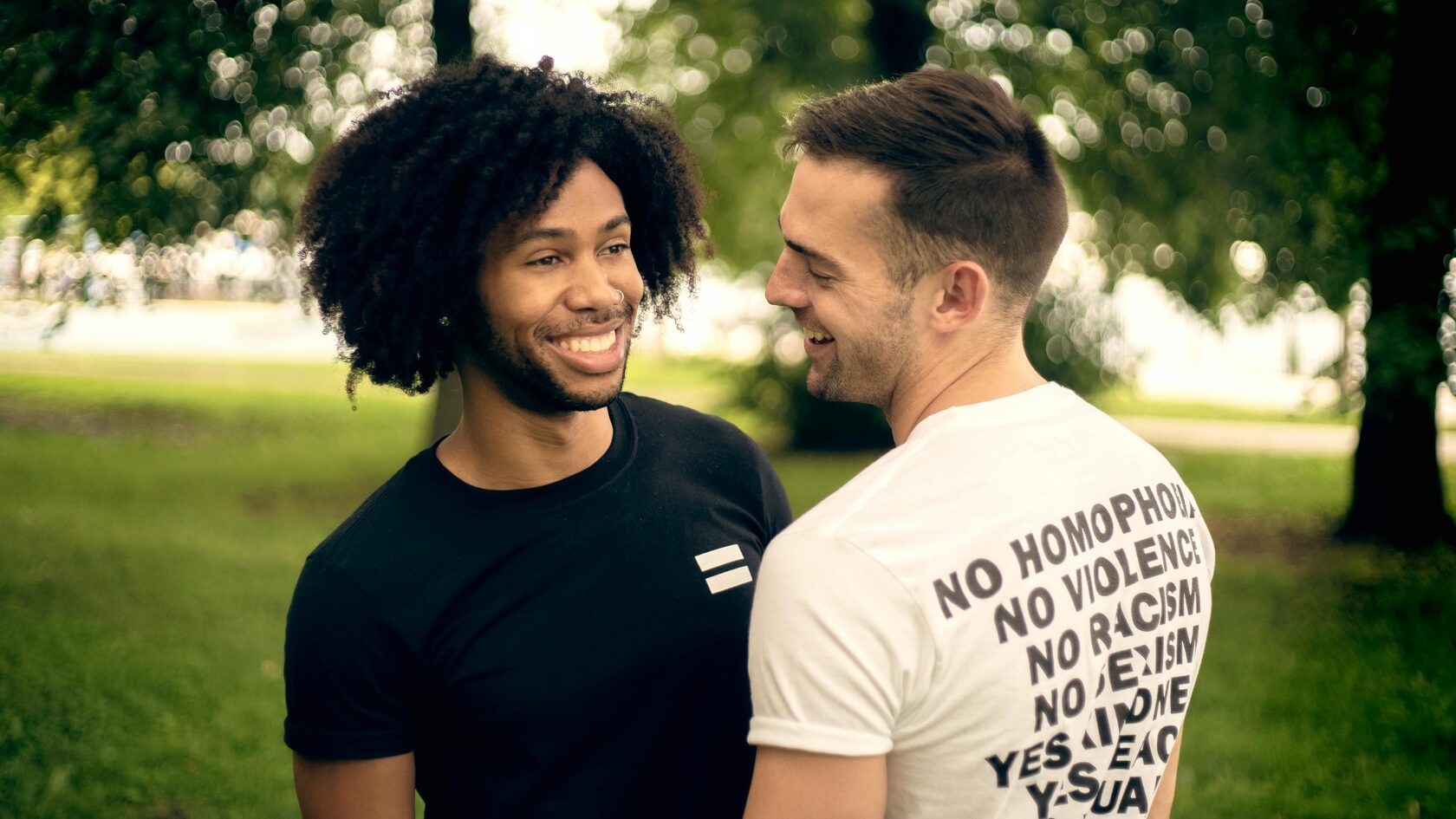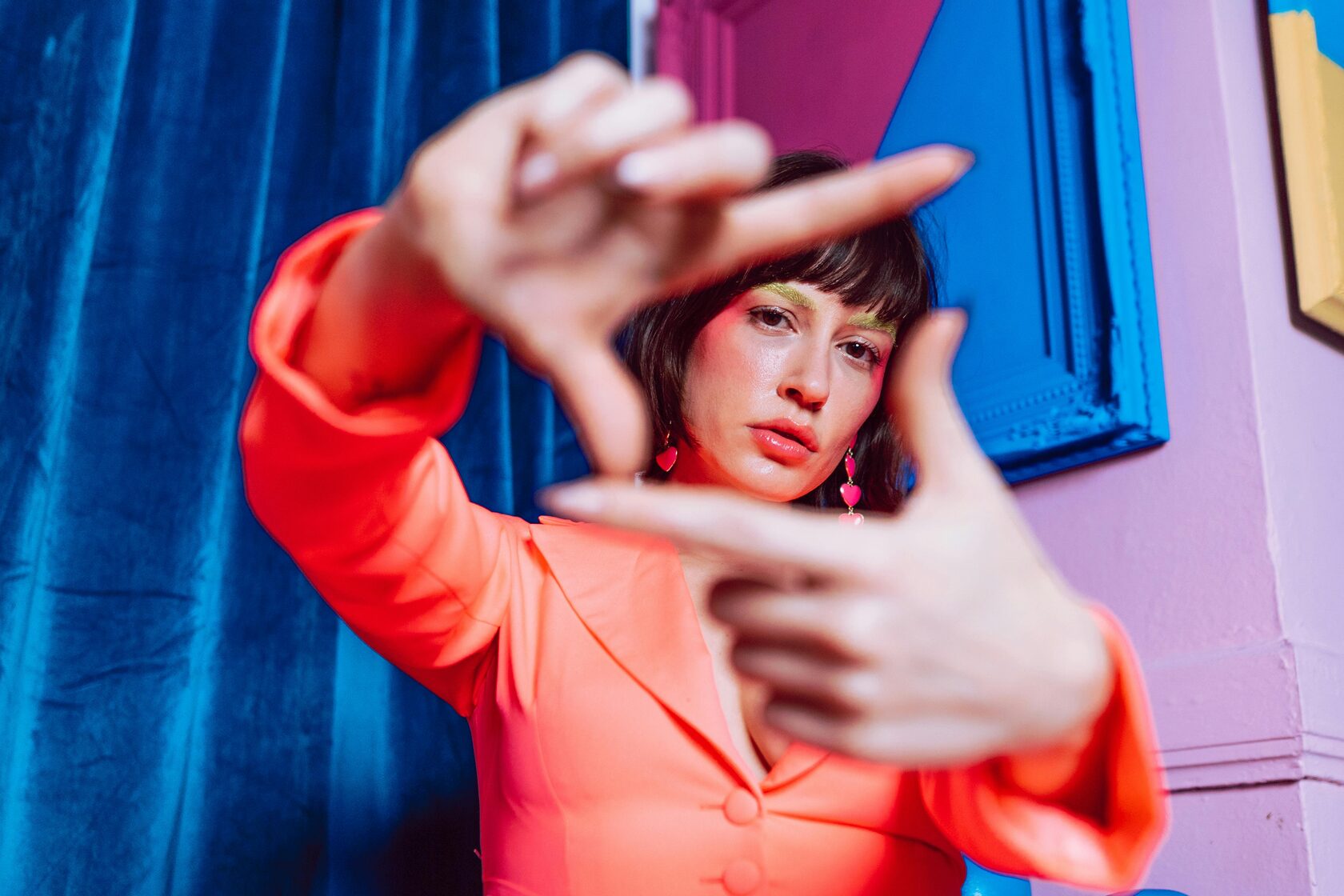Curiosity is natural, especially when it comes to exploring who we are and what we’re drawn to in relationships. Sometimes, feelings or attractions can pop up that make us question what we want or who we’re interested in. If you've been wondering whether you're bi-curious, you’re not alone! Here are four signs that might suggest you’re open to exploring beyond traditional boundaries in your love life.

What does bi-curious mean
Bi-curious is a term used to describe someone who is open to exploring romantic or sexual experiences with people of the same gender, even if they typically identify as heterosexual. It reflects a curiosity rather than a defined orientation, where someone may want to understand their attractions and interests without necessarily labeling themselves as bisexual. Being bi-curious can be a part of self-discovery and doesn’t require acting on those feelings—it’s more about being open to exploring them.
Key points on the meaning of bi-curiosity:
- It is often a temporary identity
- Can be attracted to all representatives of the same sex, or just specific people
- The attraction can stay in their heads or move into reality
- Can result in a switch of sexual orientation or end up with the person going back to “normal”
- Both straight and gay people can become bi-curious, so basically anyone
4 Signs you are bi-curious
If you’re asking yourself the “Am I bi-curious?” question, that’s already a sign that you might be. People who are confident in their sexuality and live in harmony with who they are, don’t typically wonder about alternative sexual orientations. It’s not uncommon to feel curious about new connections, especially as we grow and understand ourselves better. If you’ve ever found yourself wondering about your attractions or thinking about exploring beyond traditional labels, you might be experiencing bicuriosity. Here are four signs that could suggest you’re open to exploring this side of yourself.
#1 You’re attracted to people regardless of gender
You may notice that your attractions aren’t limited to one gender. This doesn’t necessarily mean you’re bisexual, but if you find yourself noticing qualities in people of various genders, it could be a sign you’re open to exploring connections beyond the conventional boundaries.
#2 You fantasize about same-gender experiences
Having fantasies or daydreams about experiences with people of the same gender can be a common aspect of bi-curiosity. These thoughts can range from mild curiosity to more specific fantasies, and it’s a natural way to explore what might interest you.
#3 You feel a pull toward LGBTQ+ spaces or people
Bi-curiosity often brings a sense of wanting to connect with or learn from people in the LGBTQ+ community. If you feel at ease or curious in these spaces, it could be because they resonate with your inner questions or reflect a part of you that you’re ready to explore.
#4 You’re open to experimenting with your sexuality
If you’re comfortable with the idea of trying out new things romantically or sexually, it might indicate bi-curiosity. Being open to the possibility of attraction, connection, or intimacy with people of various genders is a key part of exploring what feels right for you.
If you agree with at least one of the signs we’ve listed above – you might be bi-curious. And if that’s true, congrats! You’ve just learned something new about yourself. The next step for you would be to experiment and find out whether your curiosity leads anywhere.
If you agree with at least one of the signs we’ve listed above – you might be bi-curious. And if that’s true, congrats! You’ve just learned something new about yourself. The next step for you would be to experiment and find out whether your curiosity leads anywhere.
Bi-curious vs bisexual

The terms "bi-curious" and "bisexual" are often used interchangeably, but they actually describe different experiences and stages of self-discovery. Understanding the difference can help clarify feelings and open up a healthier approach to exploring one’s identity. Let’s break down each term.
Bi-curious
Being bi-curious means you’re interested in exploring attraction or connections with people of the same gender, even if it’s new for you. It’s often a stage of curiosity rather than a defined orientation, where someone might want to understand their feelings or explore fantasies without necessarily identifying as bisexual. Bi-curious individuals may or may not act on these feelings—it's more about openness to potential new experiences and self-exploration.
Bisexual
Bisexuality, on the other hand, is a sexual orientation. Bisexual individuals are genuinely attracted to more than one gender and may feel romantic, emotional, or sexual attraction regardless of gender. Being bisexual isn’t about curiosity; it’s a defined orientation that reflects a consistent pattern of attraction to multiple genders. Bisexual people often feel a sense of clarity and confidence in their attraction, and it can be a core part of their identity.
How to explore yourself as a bi-curious person

Feeling bi-curious can open up a new chapter of self-discovery and understanding. Exploring these feelings doesn’t have to be intimidating; it can be a journey that you take at your own pace. Here are some thoughtful and safe ways to explore your bi-curious side, helping you better understand your attractions and identity.
Online dating
Online dating platforms are a popular way to explore bi-curiosity, offering a safe space to connect with people across genders. Many apps let you customize your search preferences, making it easy to meet others who are open to new experiences or who identify as LGBTQ+. This can be a low-pressure way to start conversations, learn from others, and see what feels comfortable.
Dating
In-person dating can be an exciting way to explore, but it’s important to go at a pace that feels right for you. Being open about your curiosity can help build trust and ensure mutual understanding with your date. Take things slow, respect each other’s boundaries, and remember that you don’t have to have all the answers right away—dating is a journey, and each experience helps you learn more about yourself.
Consider your media consumption
Media can be a powerful tool in exploring bi-curiosity. By watching LGBTQ+ shows, movies, or even following social media creators who share their experiences, you can gain insights into what resonates with you. Seeing different types of attraction and relationships in fiction or real life can provide perspective and help you feel more comfortable with your feelings.
Connect to the LGBTQ+ community
Engaging with the LGBTQ+ community can offer a strong support network as you explore bi-curiosity. Whether through events, online forums, or local LGBTQ+ groups, being in these spaces lets you connect with people who understand the journey you’re on. You can ask questions, share stories, and learn from others in a welcoming and inclusive environment.
Is bicurious a sexuality?
"Bi-curious" generally isn’t classified as a formal sexual orientation. Instead, it’s seen as a stage of exploration, where someone is curious about experiencing attraction to the same gender but may not yet identify as bisexual or another label. Some may find that bi-curiosity leads to a specific orientation, like bisexual or pansexual, while others may stay comfortable identifying as heterosexual with an openness to same-gender connections. Ultimately, bi-curiosity is a personal journey that doesn’t require labeling if you’re not ready for it.
Dating a bi-curious partner

Dating a bi-curious person can be worrisome. You might be wondering if they wake up one day and decide that they’re no longer interested in you and walk away to your complete opposite.
We encourage you to avoid these thoughts and focus on the partner. While in a relationship, you can never be sure it’s going to last, but the best thing we can do is to stay loyal, supportive, and kind.
If you’re dating a bi-curious person right now, here are the tips that will help you navigate it with grace:
- Talk to them openly about your concerns. You might think it will push them away, but if you share your feelings and emotions and refrain from judgment, you’ll be amazed at how good it can be for your relationship.
- Try to educate yourself on the subject. If you don’t have friends who are bi-curious or had a similar experience, then there is probably a lot you can learn. Doing it will help you understand your partner better and also support them in a way that will strengthen your relationship.
- Stay respectful of their journey. It can be hard to do if you’re afraid to lose them but stay strong.
- Don’t suggest any labels yourself, let them figure it out and find a label that fits on their own terms.
- Agree on boundaries that will make you both comfortable.
- Respect your partners’ privacy. Don’t complain or vent about their sexual journey to others, let them be the first to break the news.
The final tip: be patient. The journey might take them a while, and it’s also possible that they’ll never know the final truth about their sexuality. If you really cherish this person and want to be with them, being patient while they deal with bi-curiosity is one of the best things you can do.
Bi-curiousity and biphobia
While many (including the Flure team) believe that exploring one’s sexuality is a great way to get to know yourself better and learn about what kind of relationships can make you happy, not everyone is so positive.
There is, sadly, such a thing as biphobia where bisexual and bi-curious people are discriminated against because of their sexual preferences. The crazy part is that biphobia comes from both ends. The straight community is doing it out of lack of understanding or because of pure homophobia. Parts of the LGBTQ+ community, in turn, can see bisexuals as straights who are having a bit of fun and wasting everyone’s time.
There is a similar dynamic towards polyamorous relationships. It’s not everyone’s cup of tea, and many fail to understand it, resulting in aggression towards people who are not in your typical monogamous relationships. Biphobia manifests in all the typical phobia ways, such as invalidation, discrimination, stereotyping, microaggressions, and even violence.
It’s important to stand against biphobia, as it’s as detrimental as homophobia. It hurts the bi and bi-curious communities and makes peoples’ lives miserable.
Things to remember if you feel bi-curious

Feeling bi-curious can bring a mix of excitement and uncertainty, but it’s important to remember that curiosity is a natural part of self-discovery. You’re not alone in these feelings, and exploring them at your own pace is perfectly okay. Here are some reassuring reminders and tips to help you navigate your bi-curiosity.
Embrace curiosity without pressure
Remind yourself that curiosity doesn’t need to be rushed or forced. It’s okay to simply feel curious without needing immediate answers. Embracing curiosity can let you explore naturally without putting pressure on yourself to label or define anything.
You’re not alone in this journey
Many people have experienced similar feelings and wondered the same things. Bi-curiosity is more common than you might think, and you’re not alone in exploring these questions. Knowing that others share your journey can make it feel less intimidating.
Take small, comfortable steps
You don’t have to dive in all at once—take small, intentional steps that feel comfortable to you. Whether it’s trying an LGBTQ+ social event, reading supportive stories, or simply reflecting, every step counts. Exploring yourself is a journey that unfolds at your own pace.
Trust the process
Remember, self-discovery doesn’t have a set timeline. Letting go of expectations and trusting the process can make it easier to enjoy each experience. Give yourself grace, knowing that it’s okay to explore and take time to find what feels right for you.
Flure isn’t just a dating app—it’s your gateway to meaningful connections and unforgettable experiences. Whether you’re seeking new friendships, someone special, or just exploring, Flure makes it easy to find your kind of people. Built on trust, safety, and authenticity, Flure turns your online dating into something truly magical. Ready to make connections that matter? Join Flure today and see where it takes you!
Bi-curious FAQ
What does the term bi-curious mean?
Bi-curious describes someone who is open to exploring romantic or sexual experiences with people of the same gender, even if they don’t identify as bisexual.
What is the difference between bi-curious and bisexual?
Bi-curious refers to curiosity about same-gender attractions, while bisexuality is a defined sexual orientation involving attraction to multiple genders.
Is there a bi-curious flag?
There’s no official bi-curious flag, but some people use the bisexual flag as a symbol of openness to exploring multiple gender attractions.
How to know if I’m bi-curious?
If you’re interested in or curious about exploring connections with people of the same gender, you might be bi-curious.
What can I do to support bi-curious people?
Offer a safe, non-judgmental space for them to express themselves and explore their feelings at their own pace.








